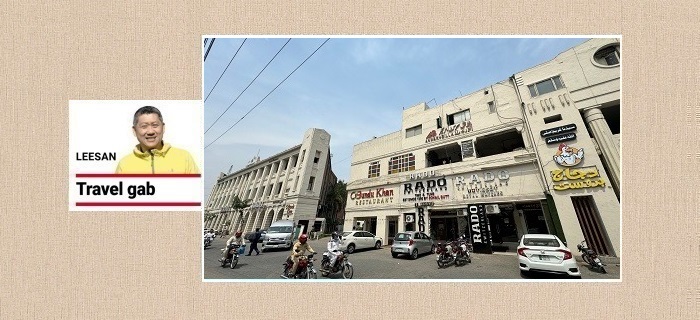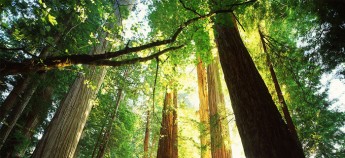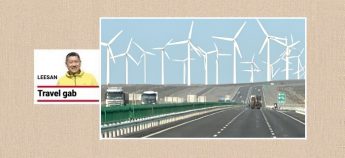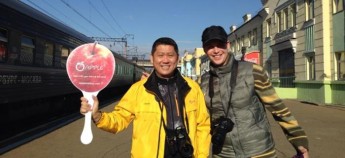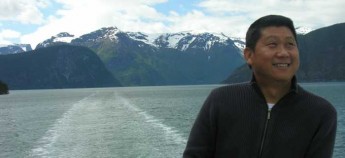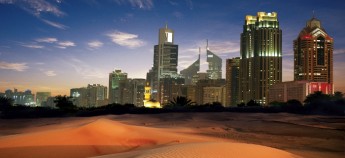The wonder of Pakistan – by leesan
With its unique seasonal allure, Pakistan is blessed with abundant tourist resources.
AS I set foot in my 138th country, my journey began in Lahore, Pakistan with Qasim Ali, whom I met there. Qasim had worked in Kuala Lumpur for 15 years starting in 1997.
Despite having returned to his home country 12 years ago, he still missed everything about Malaysia, including the family of his former employer who ran a floor-tile laying business in Kepong.
Out of Pakistan’s total population of 240 million, approximately 12 million Pakistanis are employed in various jobs around the globe.
Their efforts have been instrumental in addressing the severe labour shortages in international markets.
At the same time, the tourism industry in Pakistan has started to take off in the past three years.
The world’s second largest Muslim country has become an emerging destination for adventure-seekers from Greater China and South-East Asia, including Malaysians!
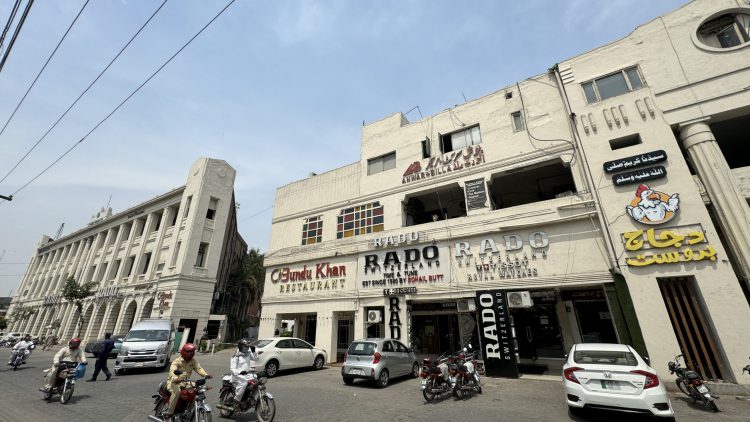
The seat of the Moghul Empire and capital of Punjab during the colonial times, Lahore is today Pakistan’s second largest city with a population of 10 million. – Photos: Handout
Pakistan, with its unique seasonal allure, is blessed with abundant tourist resources.
Bordering six other countries and spanning 990 km of coastline along the Indian Ocean, the country boasts remarkable geographical features.
Among them is K2, the world’s second-highest peak, towering at 8,611m within the Karakoram Range. Additionally, Pakistan is renowned for the Khewra Salt Mine, the world’s second-largest salt mine, celebrated for its Himalayan salt deposits.
Indeed, Pakistan encompasses much more than meets the eye.
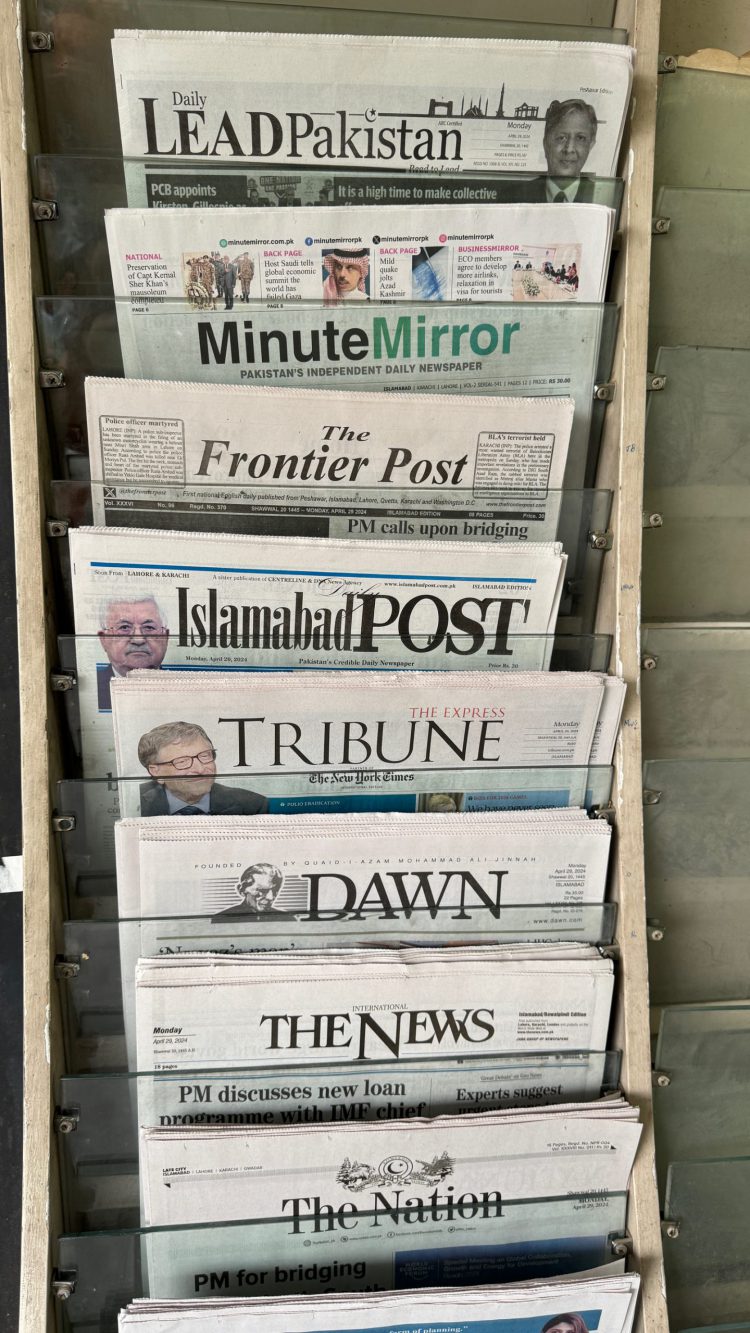
English newspapers on sale at an Islamabad newsstand. English is an official language in Pakistan.
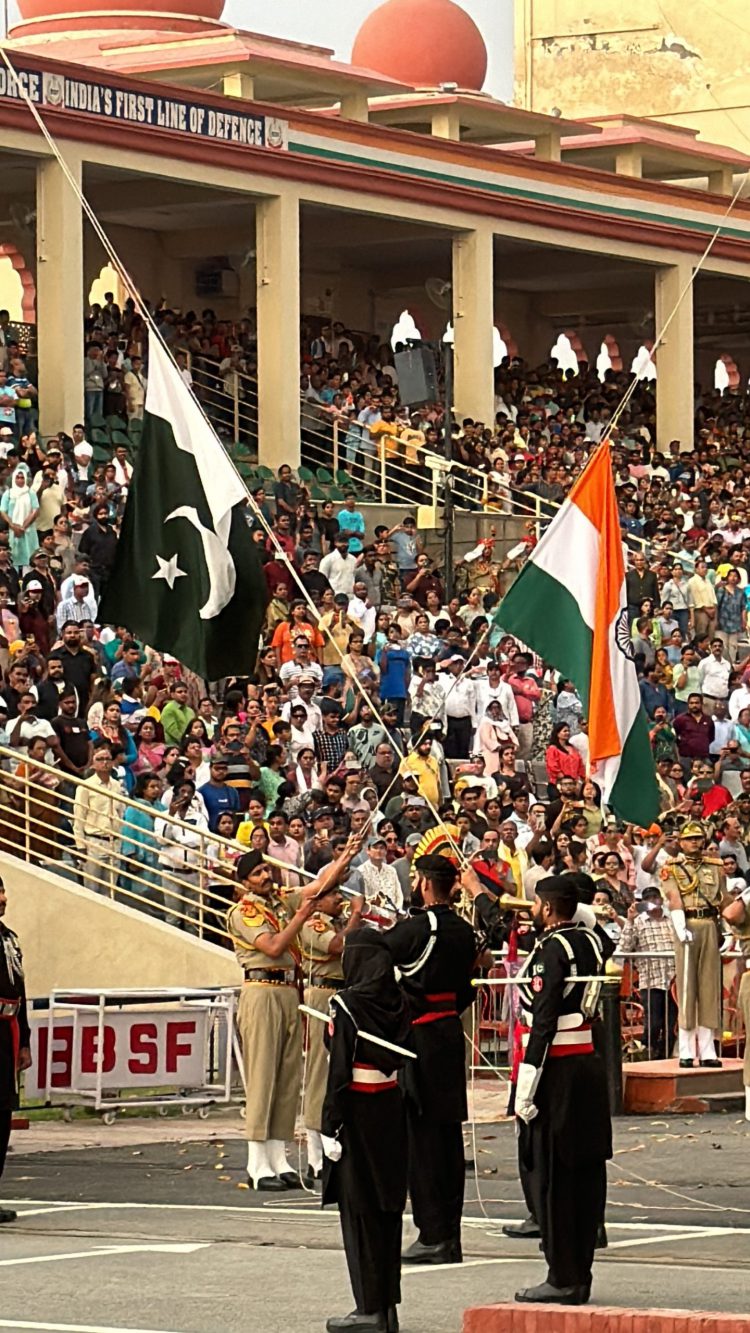
The daily 5.25pm flag-lowering ceremony at the Punjabi town of Wagah Border, bordering India.
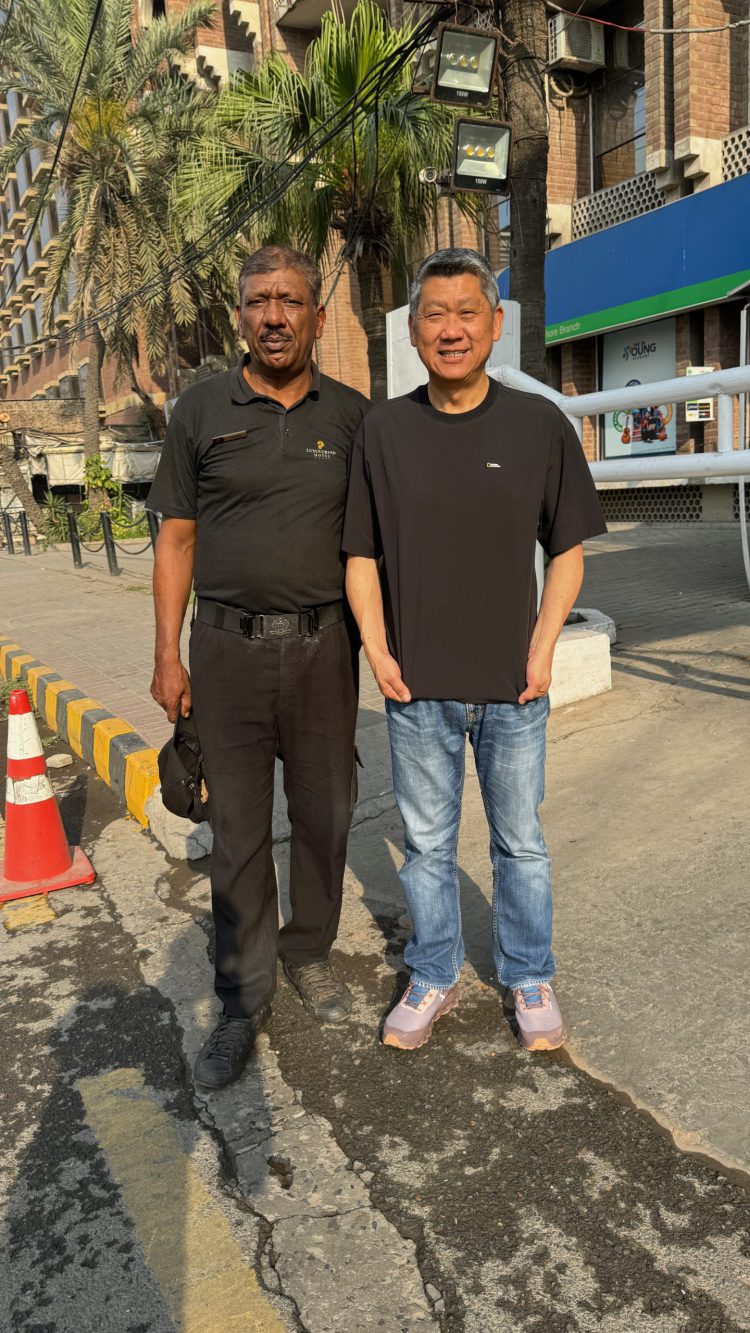
Leesan and Qasim ali, (left), who speaks fluent Bahasa Malaysia, and misses everything in Malaysia.
Over the past two millennia, the country has experienced the rule of six different dynasties, including a 90-year period under British colonial rule from 1858 to 1947, which has left behind a rich historical legacy. Combined with its stunning natural scenery, this diverse history has contributed to the development of a profound cultural heritage that beckons exploration.
As a travel professional, my focus during this trip was actually on exploring aspects of the country’s urban culture and civilisation that average travellers might be less inclined to try.
To be honest with you, I was keen to get a better understanding of the unique characteristics of the country’s four major ethnic communities, and was more than willing to discover their cultures and culinary customs.
As such, I opted to venture into the predominantly Punjabi second city of Lahore, as well as Islamabad, the capital city designed by the Greeks in 1960.
Here, I had the opportunity to observe the day-to-day urban life of old Pakistan, which was incredibly orderly, lush with greenery, and leisurely paced!
Senior marketing director Syed, who specialises in land operations, explained that the 700,000 Memon people (a Muslim community) are adept managers of the country’s economy.
Does a country with a massive population of 200 million need to exert much more effort to feed its people compared to one with a much smaller population? Not necessarily!
Pakistan benefits from relatively fertile land, resulting in self-sufficiency in food production for its people. Additionally, due to the country’s demographic dividend, foreign investors are also eager to establish labour-intensive industries, such as the textile industry.
However, the low wages offered to workers here mean that millions of young Pakistanis opt to work overseas, ultimately contributing to the country’s foreign exchange earnings.
Essentially, Pakistan is a safe and welcoming destination for tourists, especially in North Pakistan. Its spring, summer, autumn, and winter seasons provide a variety of experiences that highlight the region’s natural beauty and cultural richness year-round.

A woman carries an umbrella on a bike along a street during rain showers in Islamabad. – AFP

Students buy shaved ice cups from a street vendor in Lahore. – AP
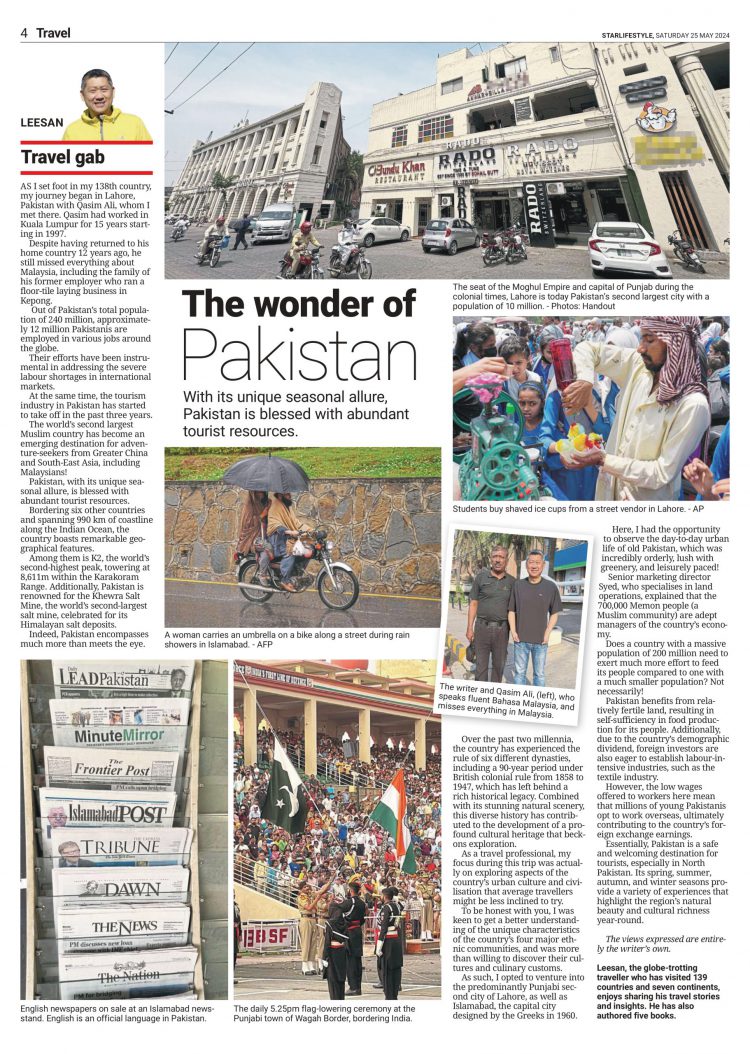
Published in The Star, 25 May 2024
全球超过80000家酒店,Apple101助您轻松订房,出行无忧,绝对优惠价。入住期间付款,多数客房可免费取消!
